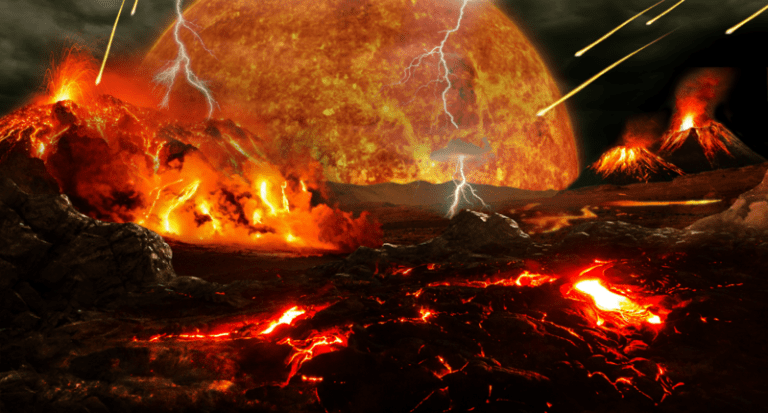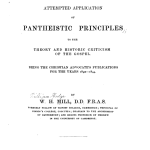
(Wikimedia Commons)
Current estimates put the age of the Earth at roughly 4.543 billion years, which means that my memories of its formation are probably just reflections of what my parents told me about it.
The Earth was formed out of debris surrounding what is called the solar protoplanetary disk. There was, of course, no life at the very beginning. Temperatures were extremely hot, with frequent volcanic activity and a hellish environment. (This period of Earth’s history, until 4 billion years ago, is actually called the “Hadean Eon.”) The Moon was formed around this time, perhaps due to a planetoid’s or a protoplanet’s collision with the Earth.
Standard theories have suggested that prokaryotic life, the first form of life, emerged around 4 billion years before the present. But conditions were still pretty rough. For instance, the Late Heavy Bombardment occurred approximately 4,100 to 3,800 million years ago, during which a large number of impact craters are believed to have formed on the Moon — and, it seems reasonable to assume, also on the primitive Earth. According to many specialists, a more advanced form of life, eukaryotic life — including some very early types of multicellular organisms — appeared roughly 2.5 billion years ago. It’s typically been thought that the first living organisms on Earth developed in the sea.
But the timetables may need to be revised. Evidence suggests that life emerged on Earth at a remarkably early point, and new research indicates that simple life forms were flourishing on land much earlier than scientists had thought:
Moreover (I point out) we have no strong reason to believe that we happen to have found the earliest specimens of such life, and we have no particular reason to assume that evidence of the absolutely earliest organisms has survived in the first place. What are the odds that we happen to have stumbled upon remains of the very earliest living organisms that ever existed? And if, by astonishing coincidence, we have, how would we know that we have?
Here’s a somewhat related article:
***
My wife and I spent a substantial portion of today at the very fine Royal British Columbia Museum, where we took in a good temporary exhibit called “Egypt: The Time of the Pharaohs” and watched a pair of IMAX movies, America’s Musical Journey and the 1998 Mysteries of Egypt, with Omar Sharif. The latter film had a strong Utah/Mormon connection, with Scott Swofford as producer, music composed by Sam Cardon and conducted by Kurt Bestor, Reed Smoot as director of photography, and so forth.
Posted from Victoria, British Columbia










